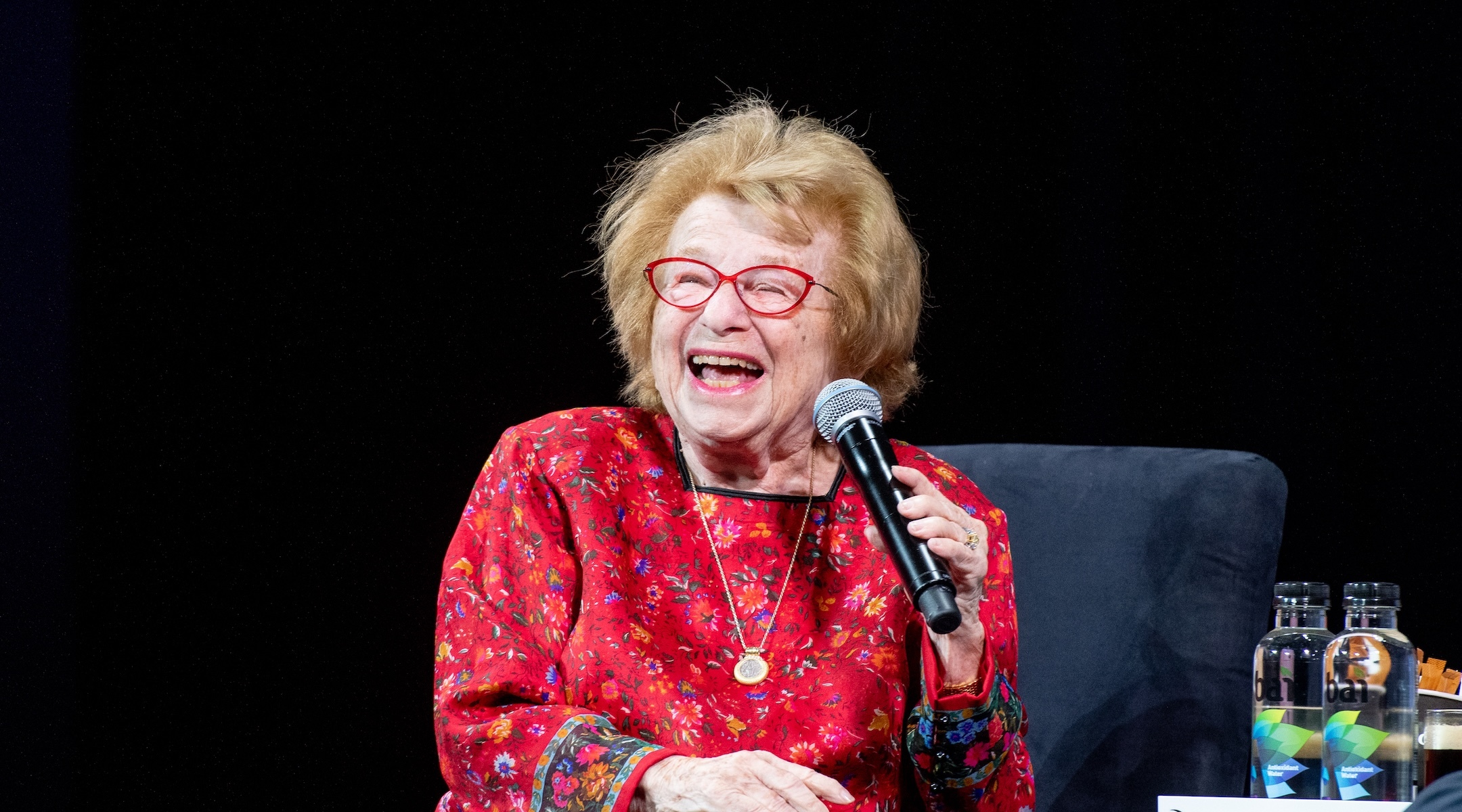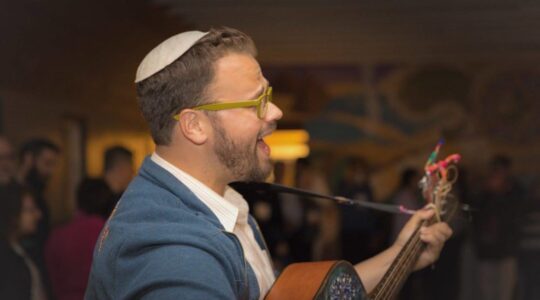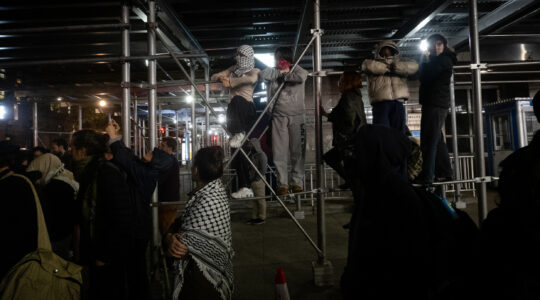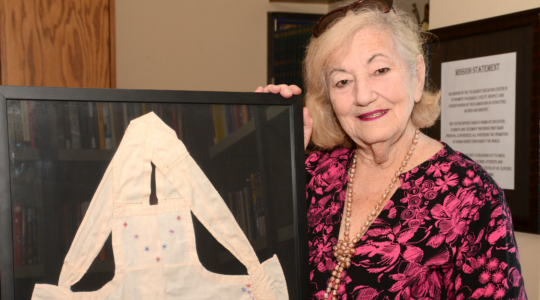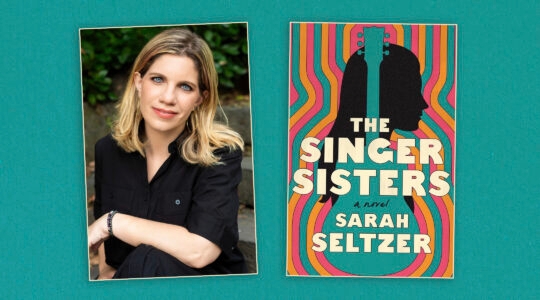Dr. Ruth Westheimer may have been beloved by millions around the world as a disarming sex expert, but at her intimate funeral Sunday on the Upper West Side she was remembered as a fiercely loving mother, grandmother and friend.
The service — whose speakers included her daughter and son, all of her four grandchildren and a close friend, Jeffrey Tabak — was at times humorous, with the eulogies addressing common themes: Westheimer’s passion for human connection, her inimitable accent, her fierce independence and her enduring love for her family.
“Few people in the world have earned the love of so many throughout the world as Ruth did,” Rabbi William Lebeau, a former dean at the Jewish Theological Seminary and a longtime friend of the family, said at Sunday’s funeral at Riverside Memorial Chapel, two days after Westheimer died at age 96.
“She was recognized universally in a world where there is so little that is universal,” said Lebeau. “She was fond of saying, ‘It is good to be Dr. Ruth,’ but she said that without being the least bit boastful. She loved being Dr. Ruth because she knew as Dr. Ruth she could do good. How many lives did she touch with her energy and creativity? How many lives did she make better because of the good she brought to this world?”
Following a singing and reading of the 23rd psalm (“The Lord is my shepherd…”), Westheimer’s daughter, Miriam Westheimer, was the first to speak. “Mommy, for so many years now, every time we spoke, I made sure to let you know that everything was OK, no matter how not OK things were,” she said through tears. “I always tried to downplay situations so that you would have to worry … but today, even I can’t say that everything is OK. Mommy I’m sorry, everything is not OK. You are gone and it’s not OK.”
Miriam went on to speak about the challenges of taking care of someone as independent- minded as her mother, including taking her to the hospital after a recent minor stroke. On the way to her hospital, Westheimer remembered she had a class to teach that evening. She told the doctor, “I will be the best and most cooperative patient between now and 4 p.m.” True to her word, Westheimer left promptly at 4.
Miriam said that while her mother sent her and her brother to private school, they spent her summers at a socialist Zionist summer camp.
Westheimer, a fixture in the Washington Heights neighborhood where they lived, was a presence at events around the city. Mother and daughter were known as the “speedy pair,” Miriam recalled.“We could get ready to go out in record time, to attend any social gathering she knew about,” she said in her eulogy. “No event, big or small, could be missed. We ran everywhere. Traffic lights were a nuisance. When I’d say, ‘Mommy, it says no walking,’ she’d say, ‘It’s OK, we’re not walking, we’re running!’”
Like many speakers to come, Miriam reflected on how Westheimer was in constant motion, saying she had “a really busy calendar, right to the end.” Miram noted that a play by Mark St. Germain based on her mother’s life, “Becoming Dr. Ruth,” is still being performed in the U.S., as well as in Hebrew in Israel. A new book by Dr. Ruth — “The Joy of Connections: 100 Ways to Beat Loneliness and Live a Happier and More Meaningful Life”— is coming out in the fall.
“The flurry of activity is dizzying, even now,” she said. “Just the way she wanted it.”
Miriam’s younger brother, Joel Westheimer, began his remarks reflecting on Westheimer’s journey from Frankfurt to Switzerland on a Kindertransport when she was 10 years old. She never saw her parents again, and made a life for herself as a kibbutznik and soldier in Israel, a psychology student in Paris and then as a doctoral student in education in New York. “She cultivated friendships and family connections like a gardener tends plants,” he said. “Because she had so little family of her own that remained after World War II she strengthened familiar connections and strengthened new ones wherever she went.”
He also reflected on how people loved to ask him what it was like growing up with America’s best known sex therapist as a mother. “While it’s true there were some books about sex lying around the house, and the occasional talk about her work as a sex therapist — and I don’t know if anyone has said the words penis or vagina in a eulogy, but I just said them to get it over with — the truth is neither Miriam nor I grew up with Dr. Ruth the celebrity.”
Support the New York Jewish Week
Our nonprofit newsroom depends on readers like you. Make a donation now to support independent Jewish journalism in New York.
Joel went on to explain that Westheimer’s first radio show, “Sexually Speaking” on the now defunct WYNY-FM, began in 1980 when he was completing high school and his sister was living in Israel. Westheimer was already in her early 50s. “Her eventual celebrity was only the public recognition of qualities she always had,” he said. “Enthusiasm, drive, a sense of wanting to help people and the world, and her irrepressible zest for life and for people.”
“She took these wherever she went, from Germany to Switzerland, from Switzerland to Israel, from Israel to France and from France to the United States,” Joel said, adding that his mother learned the language wherever she lived in order to better connect with people.
He also praised Westheimer for being a loving mother, sharing anecdotes like the time he and a friend built a clubhouse in his parents’ bedroom closet. “It stayed for months — I have no idea where they put their clothes,” he said.
“Our house was not neat — this was an understatement — but it was always lively,” he said. “What the apartment lacked in neatness was more than made up for in magical moments, and energy and joy.”
Westheimer’s son-in-law, Joel Einleger (known in the family as “the other Joel”) and daughter-in-law, Barbara Leckie spoke next. “Ruth showed kindness to everyone,” said Einleger. “Miriam and I often meet people today who can describe a brief interaction with Ruth decades earlier, as if Ruth was a close friend.”
Leckie, meanwhile, described the first time she met her future mother-in-law — Westheimer held her hand throughout the entire meal. “This is what Ruth does: she pulls people in, she pulls them close and she holds on,” she said.
Leora Einleger, one of her four grandchildren, offered a moving description of her famous grandmother’s home. “Omi’s apartment where she lived for close to 60 years served as her cluttered refuge,” she said, using a German diminutive for grandmother. “A place filled with pictures and memories of the life she built for herself.”
“Nestled between pictures of my Omi with President Clinton and artwork I made in 4th grade, sits one of the many, many bookshelves covering her apartment,” she continued. “Books were an integral part of who she was.”
Einleger — who married Elan Kane last summer, after getting engaged at a bench in uptown’s Ft. Tryon Park Westheimer dedicated to her late husband, Fred, who died in 1997 — noted that while the Nazis deprived her grandmother of a high school education, she read voraciously at the orphanage where she lived in Switzerland. Westheimer went on to write more than 40 books.
She also lauded Westheimer for being an outstanding grandmother who came to every single performance she had as a child — including the time she played an inanimate rock in a musical.
“The Statue of Liberty had a special place in her heart,” she said. “Where else could the orphan of the Holocaust with no high school education start as a house cleaner and, though her resilience, grit and joie de vivre, change the lives of millions?”
“She saw all four of her grandchildren grow up and go to college, something she often said reminded her that Hitler lost and she had won,” she concluded. “The world was lucky to have my Omi but I’ve been luckier to have her as my person.”
Support the New York Jewish Week
Our nonprofit newsroom depends on readers like you. Make a donation now to support independent Jewish journalism in New York.
“I want to ask how this woman, 4 feet 7 inches tall, became such a gigantic force?” Lebeau said in his concluding remarks. “How did she emerge from a cauldron of cruelty to live as one of the kindest persons I have ever known? The story of Dr. Ruth is told in plays, in countless books, articles, her many media interviews and appearances. But there’s a common theme in every assessment of her life: her resilience.”
